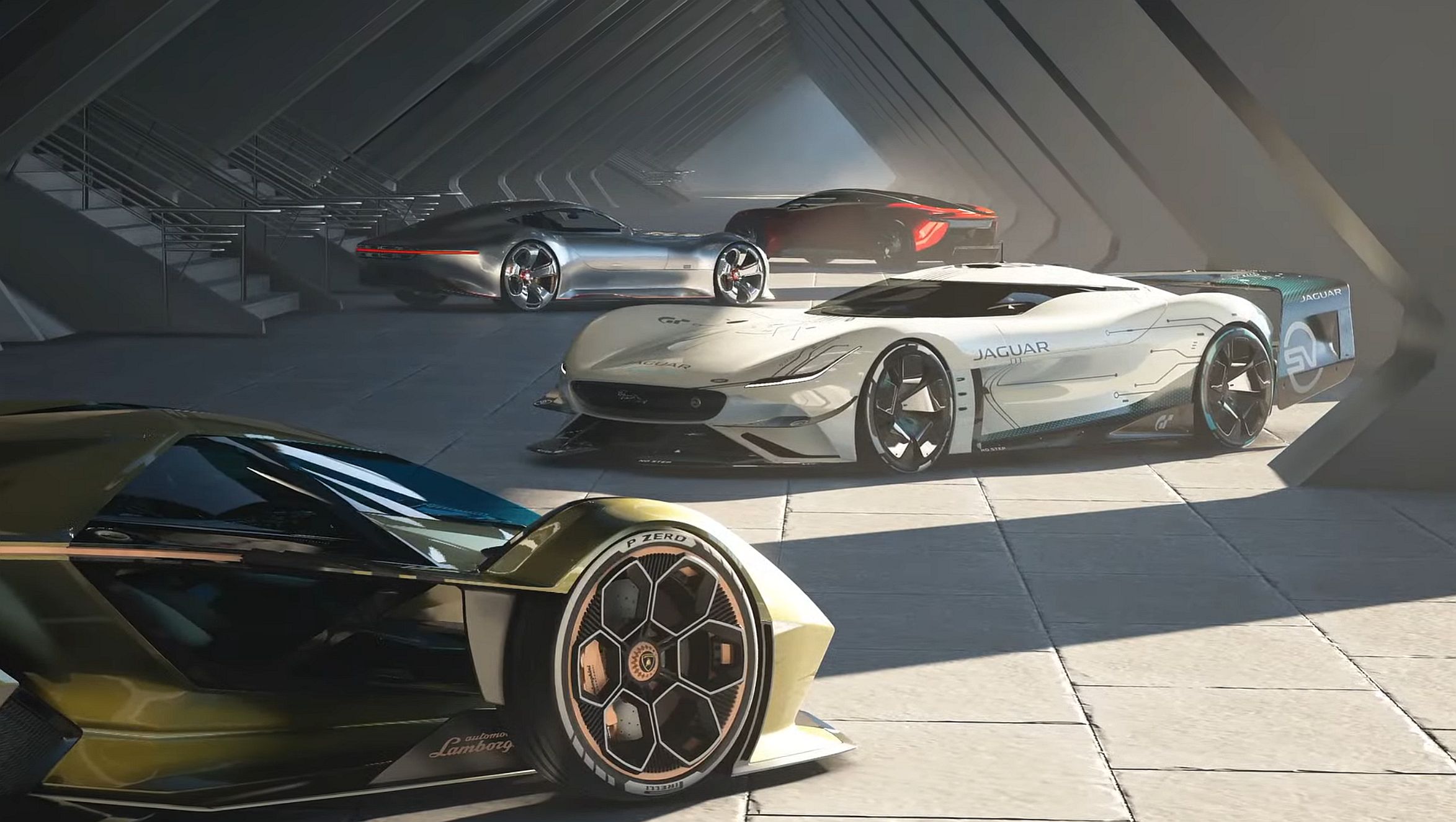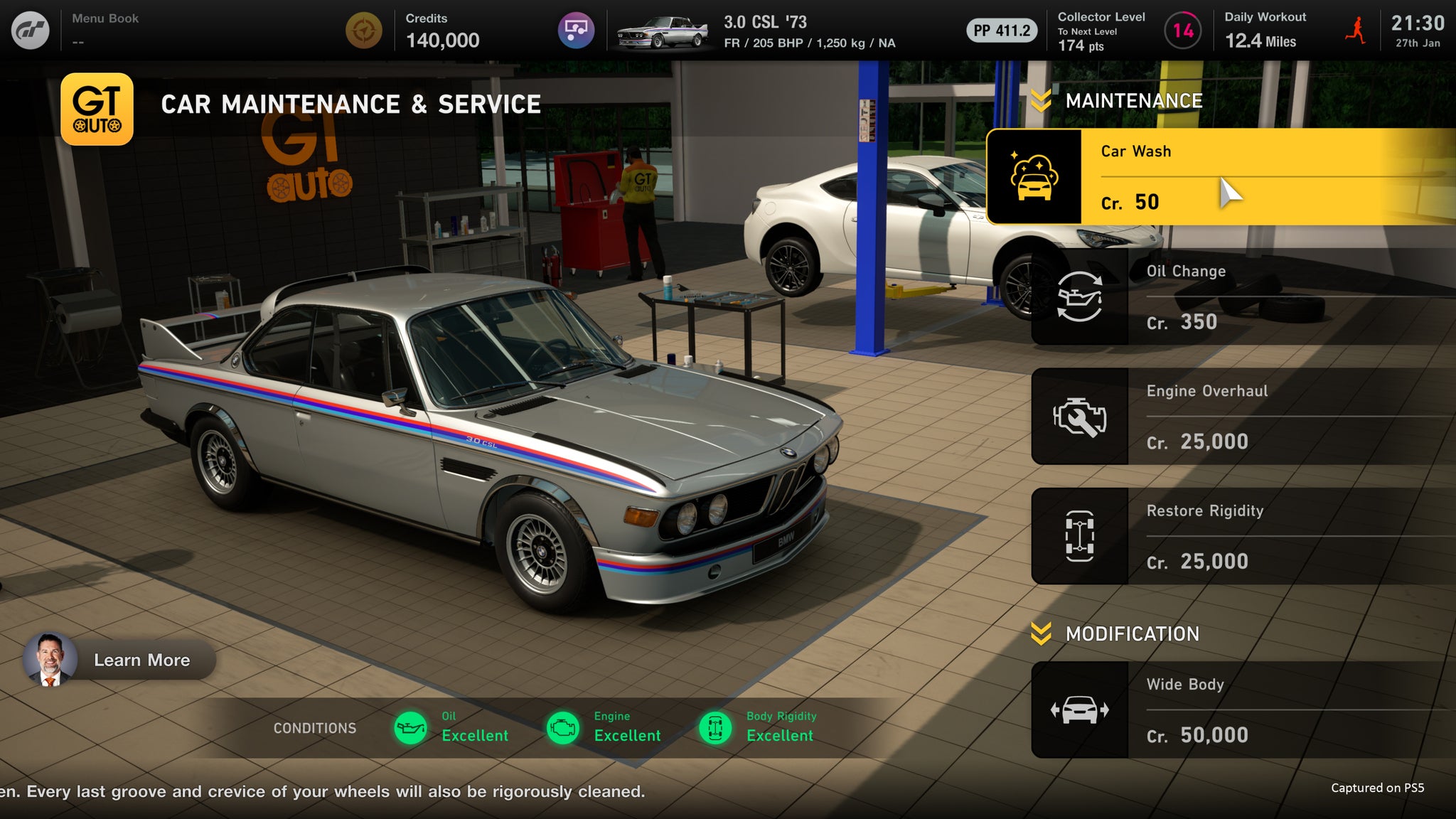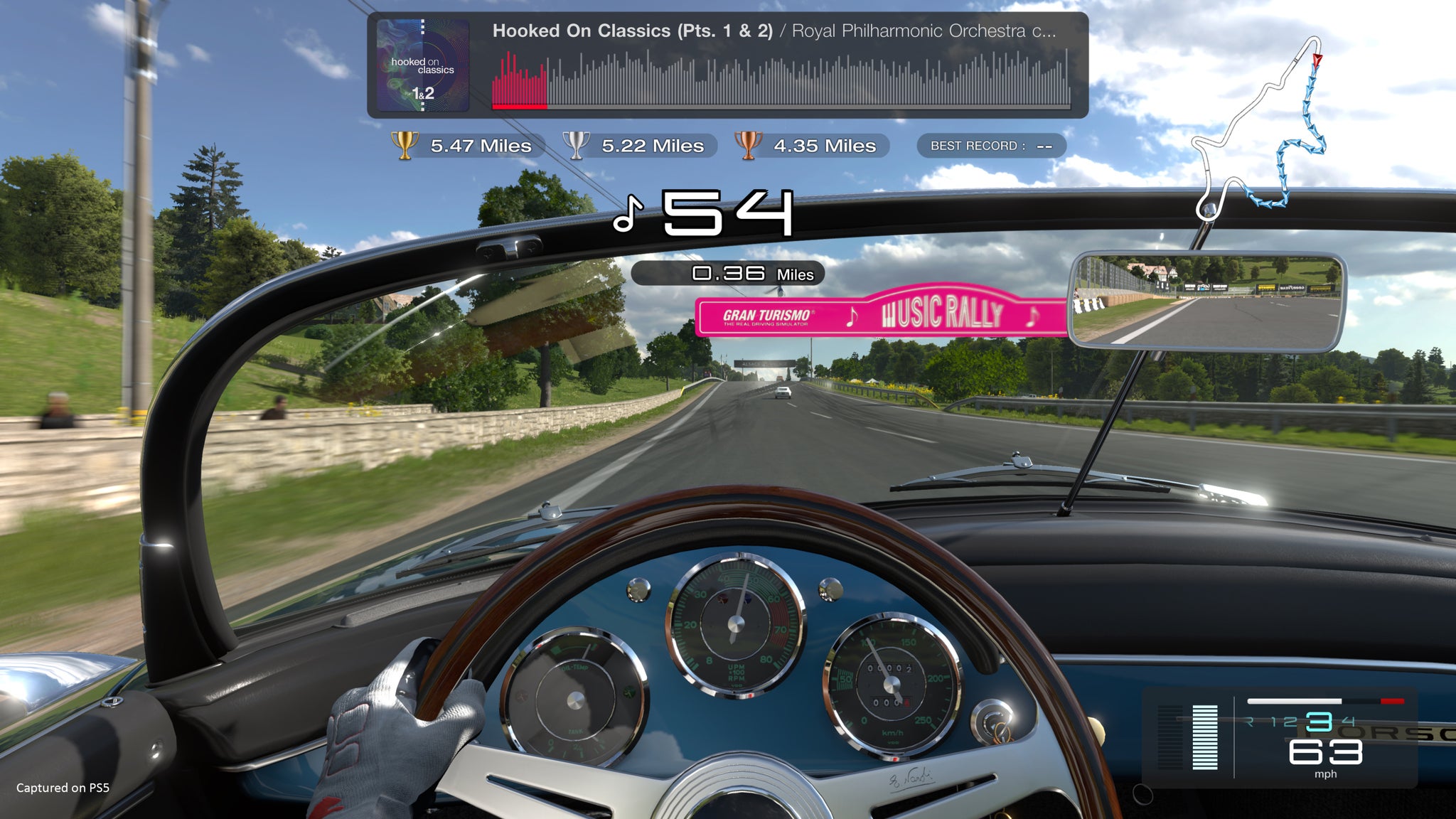What’s the weirdest thing you have gotten excited about when it comes to the reveal or announcement of a video game? Because people were losing their collective minds on Twitter when Gran Turismo 7 showed off a fairly unspectacular looking map screen at its initial showcase, because the hardcore GT fans thought it potentially meant the return of ‘classic’ Gran Turismo, following the competitive, esports-leaning Gran Turismo Sport. Moments later, further celebration at some footage of a bit of road, one that showed a much-loved classic Gran Turismo track. Then, confirmation! Gran Turismo 7 – the real sequel fans have been waiting years for – was on its way. Racing game Twitter was, as they say, absolute limbs.
Gran Turismo 7 carries itself like an important, classy affair. It’s a far cry from the Fortnite-esque noise and constant barrage of unlocks of Forza Horizon. The introduction sequence features nods to things like reaching the South Pole, the birth of cinema and even the bloody Beatles, subtly implying that – maybe – Gran Turismo is just as important a cultural touchpoint as these things. Some would say confident, some might say well and truly up its own backside. And Gran Turismo 7 is good, fair enough, but come on now.
Once you’ve passed this self-congratulatory intro, that classic GT map screen now acts as a hub for all the different elements of the game itself. Whether you’re buying new or used cars, fitting parts, tuning them, or setting up single or multiplayer races, it all starts with the map screen. However – in what is likely to be the most divisive part of GT7 – before you get started, you have to visit the GT Cafe. Here, you’re given a menu featuring three cars linked by a brand or type. For instance, three Japanese FW drive cars, and you have to take part in races to win these. Complete the menu, head back to the cafe, and you’re given your reward: a car, some money or maybe a token for the GT roulette wheel. A brief history lesson about the cars you just won and you’re onto the next one.
The car has always been the star of the show in Gran Turismo and the collector aspect has been given a bit of a ‘Pokedex’ style makeover – I found this fairly compelling to fill out and, despite not really being all that interested in cars, found the encyclopaedia of information and history on offer here to be genuinely worth checking out. The divisive aspect of this structure is that almost all of the content in Gran Turismo 7 is locked behind this progression. If you’re one of the people coming over to this from GT Sport, expect to put in a couple of hours to even unlock the ability to play online. This is an odd choice, and is almost certain to frustrate those hardcore sim racers who are looking for their next-gen fix of multiplayer competitive racing.
For those approaching GT7 from a more casual place, this allows for what is a very dense game to slowly feed you the content, gradually allowing you access to more modes and features and explaining them without instantly overwhelming you. There’s definitely the vibe of a bit of a series reset here, taking beginners by the hand and guiding you from racing in a second-hand road car, through customisation, through those challenging licence tests, with the end goal of getting you racing online in the aspects of the game that mirror GT Sport, and that successful push into the world of esports.

It’s a stunning looking game, with replays taking advantage of ray-tracing (albeit at 30fps). Actual racing prioritises framerate and therefore doesn’t have any ray-tracing but, honestly, it isn’t something you’re going to notice when you’re punting along at 200mph on the Nordschleife.
Throughout the single track races and championships, you’ll notice that the AI drivers are all actual Gran Turismo esports competitors, so the game is getting you accustomed to what has been a major part of the GT focus over the past generation of consoles – and maybe one that fans of the series who skipped GT Sport may not be aware of. Polyphony Digital’s endgame here is to keep people playing long after they’ve finished with the GT Cafe.
Sim racing, of course, is a fairly intimidating thing. People who have gotten good at sim racing have gone on to drive in actual real life car racing, such is the authenticity on offer these days. There is a pretty hefty suite of assist options to allow players of all skills to enjoy what’s on offer here, but there’s also some other smart features that help bridge the gap between the hardcore petrolhead and your average gamer. For instance, it is certainly not expected of any player to understand what any of the parts you can buy for the cars actually are or what they do, so Polyphony has added a PP number that acts as a means of summarising a car’s performance. Think of it as the Power number in Destiny, or the armour rating in an MMORPG.
Slap a few bits on the car, watch the number go up. Races have “recommended PP ratings” and you have the option to either buy a car that fits the bill or tweak one that you currently have until it stands a chance. For those who have recoiled at how simplistic this all seems, do not fear – you can still go into each part in greater detail and hyper-tweak things until the setup is exactly how you want it, allowing you to eke that extra bit of horsepower out of your chosen vehicle.

Outside of the Cafe-led campaign, there’s plenty of other things to do. YOu can take photos of your motor in photogenic backgrounds in the returning Scapes mode. Sport mode returns, too, with daily races and – eventually – proper GT league competitions becoming available. The multiplayer aspect was quite limited pre-release, but the sessions that took place seemed very stable and followed the same blueprint as Sport; pick a race time, jump into qualifying laps until it starts. Hit up the showrooms and buy a new car, or keep an eye on the used car section for any bargains. There’s even a ‘legendary cars’ section, which has a few famous automobiles from pop culture available for some eye-watering prices. This all helps you tick off entries on that car list and boosts your Collector’s Rating, which in turn unlocks more content, more modes.
Even if you don’t fancy racing, everything you do feeds back into that core of car collection. If you want, just head to the Cafe and speak to some of the regulars and learn a bit about the history of some of the cars in your garage. There’s also the ‘Music Rally’, which has you trying to cover as much distance as you can before the end of a song, which sounds odd but does tie into Gran Turismo’s legacy of having pretty famous soundtracks. Unfortunately, though, this game doesn’t have one. In fact, the overall OST is pretty dreadful – can I justifiably knock a mark off a score because a game doesn’t feature Feeder on the soundtrack in 2022? It is a slight shame that this aspect of GT’s history wasn’t given a little bit more love, but hey, that’s licensing rights for you!
A special mention needs to go to the use of Sony’s DualSense controller. Outside of some few-and-far-between first party efforts, the controller’s more flamboyant features have underwhelmed a bit but Gran Turismo 7 more than makes up for the past year – it is relentless! Every dip in the road, every gear change, even the feeling of a sponge being run along the bonnet can be felt in the pad or the triggers. The off-road rally tracks are absolutely ridiculous!
This ties in nicely with the new weather system, too. A rainy day can massively affect a race and, in one case (where I got a bit cocky up at Brands Hatch and tried and stay out for an extra lap on hard racing tyres in the wet), I felt the car’s grip slip out from underneath me as I aquaplaned into oblivion. That sensation, which is impossible to describe until you’ve felt it yourself, actually helps improve your racing because it is so much more effective in communicating what is actually going on with your car than anything visual. It’s no replacement for a decent wheel setup, but seeing as this is the way that most players will play GT7, the DualSense integration is really quite impressive, and definitely improves the experience.

After the now customary delays, Gran Turismo 7 is here, in time to celebrate the 25th anniversary of the series and a celebration is a fair way of looking at it – it feels like a real ‘best of’ all things Gran Turismo. From the obvious shift back towards a more single-player driven (sorry) campaign, the series’ standard bearing visuals, and now integrating the competitive edge seen in Sport, this mash-up of both the far and recent history of one of gaming’s biggest racing series should see it climb back on top of the genre.
You can, perhaps, reductively describe Gran Turismo 7 as ‘GT Sport with a single-player component’. But seeing as that was all GT Sport needed to be an absolutely stellar racing game, this is a must-have for hardcore racing fans and the kind of game that is so good it might actually transform a few casual players into bonafide petrolheads themselves.

